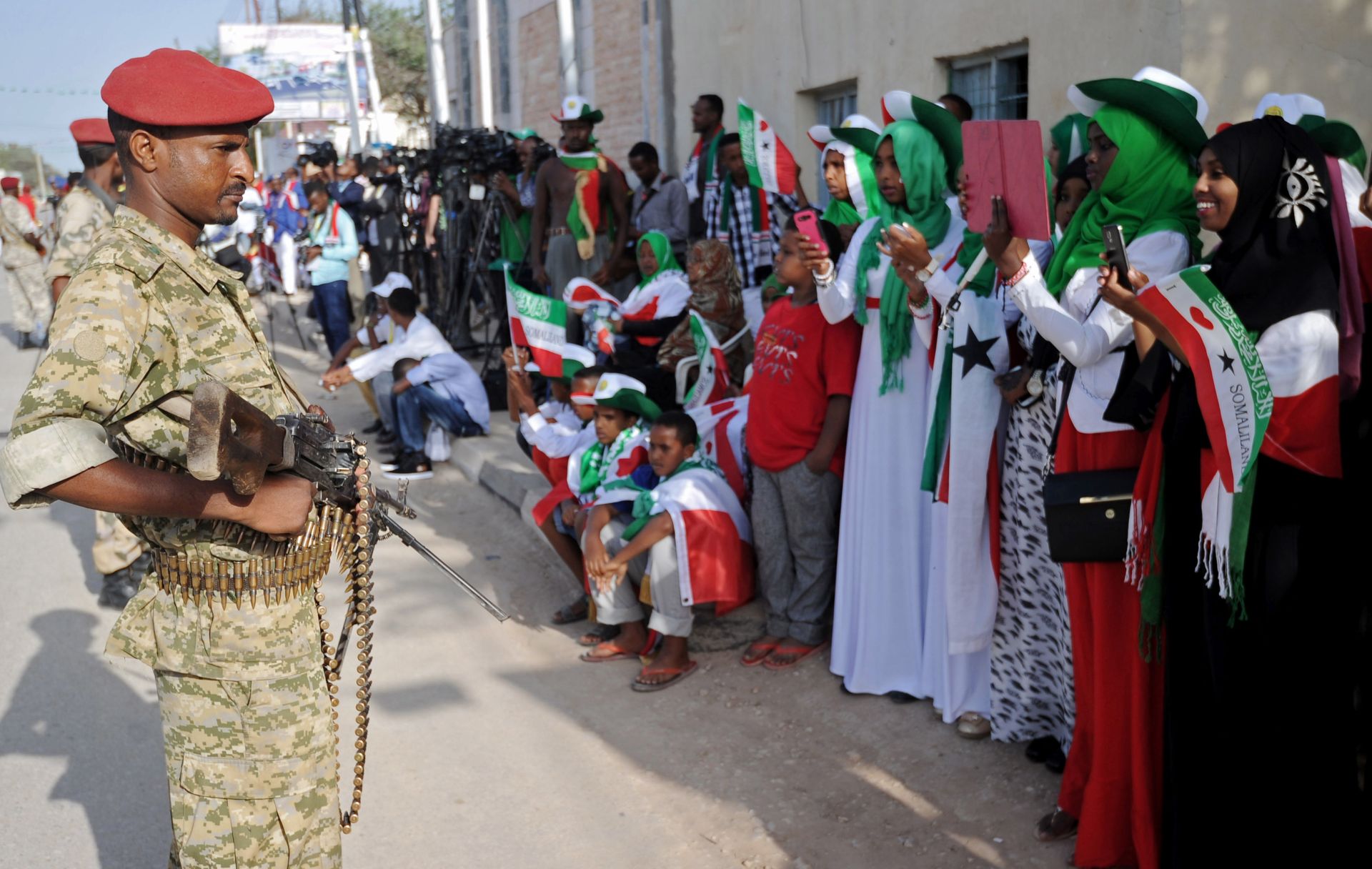“Somalia has been in one form of civil war or another for about 30 years,” James Barnett tells New Lines magazine’s Joshua Martin on the first episode of The Lede’s fourth season. “You have this dynamic where the government in Mogadishu doesn’t have much direct power or presence in most of the rest of the country.”
The result, explains Barnett, who traveled there in June to report for New Lines, is that large swaths of the country are actually controlled by local independent and autonomous governments that don’t always dance to the beat of Mogadishu’s drum. “Even though there’s a veneer of statehood or state authority, a lot of it is essentially clan politics — elders or clan leaders that are building up their own institutions,” he says. Perhaps the most successful has been the Republic of Somaliland, which declared independence in 1991, though it has not achieved U.N. recognition.
With its own legal system, legislature and national anthem, Somaliland has often been hailed as a success story for its multi-party democracy and relatively stable administration. Yet in the border city of Las Anod, captured from the autonomous government of neighboring Puntland in 2007, the Somaliland independence movement now faces an independence movement of its own: the SSC, a militia group formed by the Dhulbahante clan and its allies.
Barnett spoke to dozens of SSC fighters determined to establish their own autonomous state in what they consider to be their ancestral lands.
“This is a war between the Somaliland government and these militias, but it’s much more than that too.”

“Their main goal right now is to break away these lands from Somaliland,” Barnett says. “Then they want to become a federal member state, similar to the status that Puntland has.”
Since the fighting started at the beginning of the year, the two sides were at a stalemate. But on Aug. 25, “the entire battlefield situation changed really overnight.” A shock SSC offensive drove the Somaliland Armed Forces out of Las Anod. “SSC activists are declaring August 25 victory day,” Barnett says. “Even some of them were surprised that it had happened so quickly.”
The consequences may spread far beyond the borders of Somaliland or the SSC’s nascent Dhulbahante state.
“This is a war between the Somaliland government and these militias, but it’s much more than that too,” Barnett says. Analysts in Mogadishu told him that they fear a domino effect, he explains, worried that “now we’re gonna have other clans in the south who say, ‘Well, if the Dhulbahante can fight Somaliland to get their own state, then our clan should also have its own federal member state.’ This conflict is opening up Pandora’s box.”
Produced by Joshua Martin


